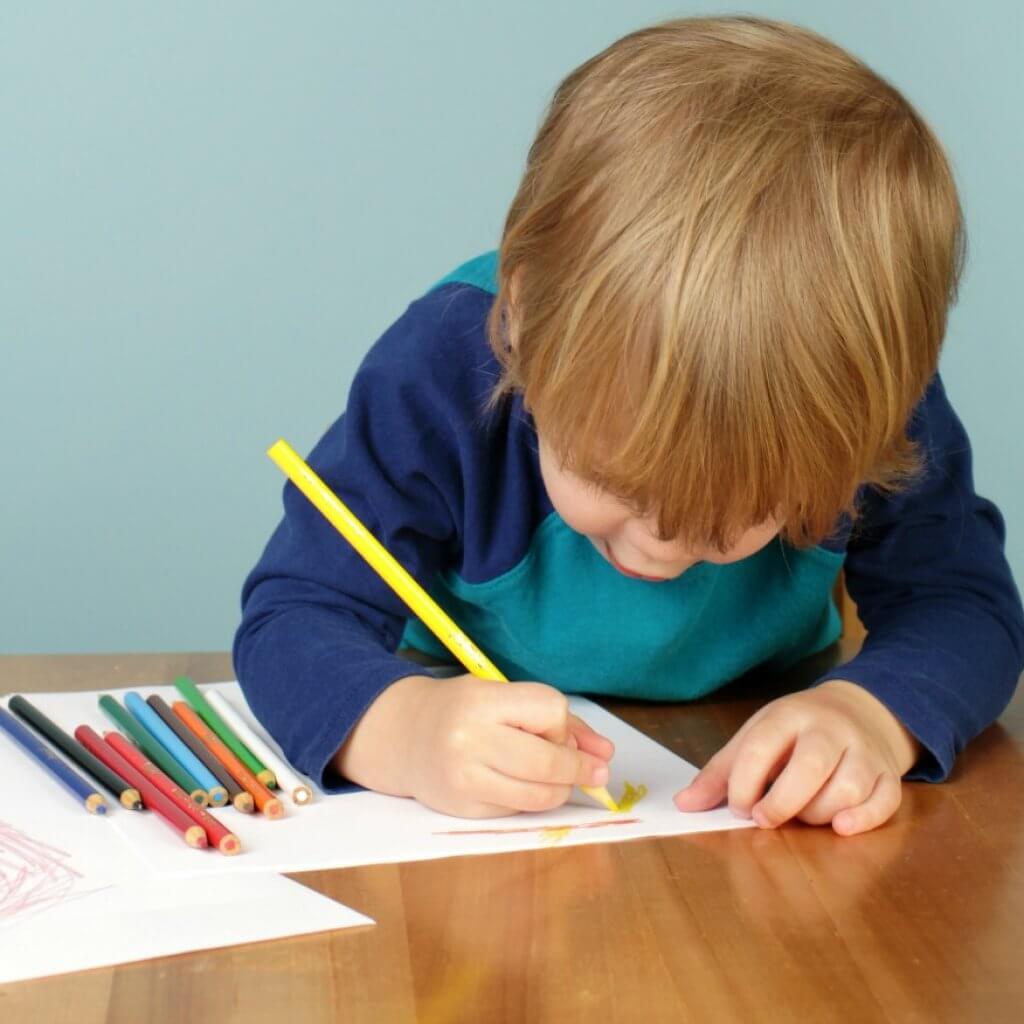Positive Parenting: 12 Tried and True ways to Praise your Kid

“You’re so handsome!” “You’re such a good girl.” “Good job!” “You’re a great basketball player.” These are just a few of the common phrases we use to praise our children. It turns out that not all praise is equal. Some forms of praise are better than others. “Oh, you’re telling me there is a right way and a wrong way to praise kids nowadays?” Yes, I’m telling you exactly that. Keep reading to find out the differences between good praise, bad praise, and tips on how to praise your children well.
What Not to Do
“How is there bad praise? It’s called praise because it makes our kids feel good, right?” Well, not all praise is good, and even though all praise has good intentions behind it that does not mean that it won’t backfire at some point or another. There are five types of bad praise I’ll stick to, and explain.

Overdone Praise
The first type of negative praise is overdone praise. Of course you want to tell your child how proud you are of them, I get that. When you repeatedly praise them for doing the same thing, like picking up their blocks, or tying their shoes, that is when it gets ridiculous. When praise is overdone, it loses its validity and importance.
Your child no longer sees you as genuine or sincere, and they lose trust in you. Over praising can also hinder the child’s growth. They become scared to try new things, for fear of failing or not receiving your approval.
Children become scared to fall from that pedestal you have placed them on. They begin to believe that your approval is necessary for every little thing they do, and they become overly dependent on you. Not to mention that constant praise is annoying and belittling.
Too Little Praise
On the opposite end of the spectrum from overdoing praise, is not praising your children enough. Children need to feel good, they yearn for approval and acceptance. Praise gives them a gentle way of knowing what is good about themselves and their behaviors. When not praised, children will not feel good enough.
Seeing their friends praised, they will wonder why they don’t deserve praise, and what made them not worthy. They will begin to believe you don’t care. If you don’t praise their picture that they made just for you, not only will it break their heart, but it will teach them that you don’t care about them or their accomplishments.
They will not see a point in working hard to accomplish things, because what use is it if they don’t get any recognition from it. Praise serves as positive reinforcement. Without that, they will wonder, “why do I even try?”
Generalized Praise
“Good job!” “Way to go!” Common praise phrases, I know. While they sound okay, they are very vague, and do not mention anything about what they did. What did they do so well at? Why do you like their picture they colored?
Why do you think they’re good at soccer? Noticing the details gives them something to go on.
“You did great sitting still for the doctor, I know shots can be frightening.”
“I love the way you drew that fish!”
“You are a really quick runner, you chased that ball down the field so well.”
Over generalized praise doesn’t carry much weight behind it, because it is thrown around so often. Tailor the praise to the specific event.
Bragging
While not direct praise, this is a parallel to praise, and it needs to be addressed. Aside from not winning you any friends (and quite possibly gaining you some enemies), bragging about your child, or anything for that matter, is rude and classless.
Should your kid hear that you are bragging about them, they will be embarrassed, and rightfully so. Bragging also puts pressure on children to perform, which can lead to them being nervous and not doing well as a result. Just, have manners and don’t brag about your child, no matter how smart and ahead on her milestones you think she is.
Offering Incentives AKA Bribing
“If you get an A on your science project, I’ll give you five dollars.” While this may sound like a good motivator to push your child to succeed, it isn’t encouraging them for the right reason. When a child has an incentive to succeed, such as money or treats, they are working to obtain that, not to succeed for the reward of accomplishing something.
When kids succeed, they get the positive feelings that come along with that. When offered incentives, they work towards that, not accomplishing a goal.
Instead of offering rewards for success, when they do succeed, give them a treat then, without having mentioned it previously. This enables the child to work hard for the sake of success and being proud of themselves, and you get to surprise them with a trip to the ice cream shop.
Tips to Give Good Praise
Now that we have discussed how not to praise children, let’s get into the good stuff. “How do I praise my child in a way that is effective and positively influences them?” There are many different ways to positively praise your child, from gestures to being specific about what they’re good at. You would be reading for hours if we talked about all of them. Let’s go over the seven most common ways to praise kids in a positive manner.
Be Genuine
Children have a sixth sense about them. They seem to always know when you are lying or not being completely genuine. The old phrase, “say what you mean and mean what you say” really applies here. If you aren’t going to believe every bit of what you are telling a child while you’re praising them, don’t praise them at all. Believe me, they will find out if you weren’t genuine in you praise.
Body Language
There is a world of difference between an “I’m proud of you” phrase said while looking at the evening news, and an “I’m proud of you” phrase said while looking your child in the eye and patting them on the back. Body language plays an enormous role in how we perceive the things being said to and around us. When praising your child, look them in the eye. This increases confidence, and makes you appear more genuine. A pat on the back or a squeeze of the shoulder adds a personal touch, giving the same vibe as a hug to a child.
Another way to praise through body language is with gesture praises. “Way to go!” shouted during a flag football game isn’t very personal, as it appears to be directed to the whole team. A big smile and a thumbs up when your child spots you in the bleachers has more impact. They know you’re praising them on their playing skills.
An enthusiastic high five offered when your kid brings home that difficult essay that they ended up getting an A on shows that you are joining in on their success. You show that you are just as happy for them as they should be for themselves. That is even better than just recognizing their success.
Be Specific
Perhaps the most important tip of all is to be specific with what you are praising. “You write so well” doesn’t tell the child much. What did they do with the drawing that deserves your praise? What do you like so much about it? “Your cursive has improved greatly in the last few months, your practicing is paying off!” See how much better that sounds?
You specifically compliment their cursive handwriting, while acknowledging their hard work that went into achieving it. Let’s try another example. “You are so athletic!” That tells the kid nothing. “You are becoming a great gymnast! Your backflip on the balance beam was so smoothly executed.”
Focus on Individual Strengths
This is important if you have multiple children, especially if you have twins. Naturally, kids compare themselves to others. It isn’t the healthiest thing in the world for them to do either. To combat this, here is an ideal scenario for an example. Your child walks up to you and says,
“Mommy/Daddy, I suck at school, I’ll never be as good at math like my brother/sister is.”
Your ideal response should be something like,
“They are good at math, but you’re really good at Spelling.”
Acknowledge the other child’s strength, while also mentioning something your child is good at that falls under the same topic. The category used for this scenario was school. They need to learn that everyone has different strengths, and just because they aren’t as good as someone else at something, doesn’t mean that they’re bad at that broader topic.
Effort Not Outcome

When you praise your child, be sure you are praising the effort they took and the hard work they did, not the completed project.
“Congratulations on that A” versus “Your studying really paid off, you got an A on the test!” Notice the difference?
When you just praise them for a good grade or for winning the game, you’re not acknowledging the work they did to achieve that. Praise their study habits and their improved throw at the pitcher’s mound instead.
By praising only accomplishments, they could end up feeling even worse when they fail at something. Acknowledge that they tried their best, and don’t focus on the end result too much.
Notice the Little Things
When your child cleans up their toys or brushes their teeth without being told to, praise them for it. It’s good to praise good behavior when you see it, because it reinforces that they are doing something positive and making you proud.
This is different from overdoing the praise because you aren’t going to continue praising them each and every time you see them doing something without being asked. It is a positive reinforcement strategy, they innately want to make you happy and gain your approval. By praising your child for doing seemingly minute tasks without your asking, it enforces that good behavior and they are happy that they made you happy.
Keep Their Chin Up
Children notice when you criticize yourself, even if you are joking to some extent.
“I’m awful at sewing” type comments, when said often enough, will rub off and cause your child to become overly critical of themselves.
Don’t let your kid belittle their abilities. When your daughter says, “I can never play this part right,” acknowledge her frustrations by replying with something along the lines of;
“It’s alright, that note change is really tricky. Let’s continue on and try again later.”
By letting her know you understand her frustrations, she doesn’t feel like she isn’t good enough at the piano, it’s reassuring to her. Offer optimism and hope by adding something like, “You’re getting close, I know you can nail it with more practice.”
It’s A Wrap!
Alright, I’m going to do a quick rundown of all of the tips, in numerical order. Save it, copy and paste it, or write it down if you feel like it, and share it with your parent friends.
Bad Praise
- Overdone praise
- Too little praise
- Generalized praise
- Bragging
- Bribing
Good Praise Tips
- Be genuine
- Body language
- Be specific
- Focus on individual strengths
- Effort not outcome
- Notice the little things
- Keep their chin up
I hope this was helpful to all of you, and I hope that you learned a new way of praising your child.






